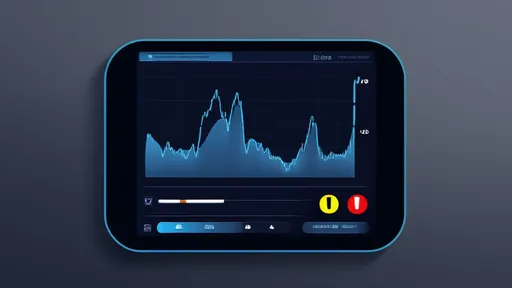The concept of childcare has evolved significantly over the years, with parents increasingly seeking flexible and reliable solutions for their little ones. Among the most sought-after services is temporary babysitting for children under three years old. This niche has grown rapidly, driven by the demands of modern parenting, where work schedules, social commitments, and unexpected emergencies often require immediate childcare support. Unlike traditional daycare centers, temporary babysitting offers a more personalized and adaptable approach, catering to the unique needs of infants and toddlers.
Parents of children under three face distinct challenges when it comes to childcare. At this tender age, children require constant attention, emotional nurturing, and age-appropriate stimulation. Many parents hesitate to leave their toddlers in institutionalized daycare settings, preferring the comfort of one-on-one care in a familiar environment. Temporary babysitting services bridge this gap by providing qualified caregivers who can step in at short notice, whether for a few hours or several days. The flexibility of such services makes them invaluable for working parents, single mothers, or families without extended support networks.
The rise of on-demand babysitting platforms has revolutionized how parents access childcare. With a few taps on a smartphone app, families can now book vetted babysitters with verified experience in caring for infants and toddlers. These platforms often include detailed profiles showcasing caregivers' qualifications, certifications in pediatric first aid, and reviews from other parents. The transparency and convenience of digital platforms have significantly reduced the anxiety associated with entrusting a stranger with one's child. Moreover, many services now offer the option of recurring bookings, allowing parents to establish a relationship with a preferred babysitter for regular needs.
Quality temporary babysitting for the under-three demographic requires specialized knowledge that goes beyond basic childcare. Caregivers must understand infant sleep patterns, age-appropriate feeding schedules, and developmental milestones. The best providers undergo rigorous training in early childhood development, learning how to engage toddlers through play while ensuring their safety. Many premium services now incorporate educational elements into their care, with babysitters trained in Montessori principles or other early learning methodologies. This educational component adds value for parents who want their child's temporary care to contribute positively to their cognitive and social development.
Safety concerns remain paramount when selecting temporary childcare for very young children. Reputable services implement multiple layers of protection, including comprehensive background checks, identity verification, and in some cases, real-time monitoring during babysitting sessions. Some providers have introduced innovative safety features like GPS tracking of babysitter arrivals and departures, or emergency alert systems. Parents are increasingly looking for services that offer insurance coverage and proper vetting procedures to ensure peace of mind when they're away from their child.
The COVID-19 pandemic brought new considerations to temporary childcare services. Hygiene protocols, health screenings, and vaccination requirements have become standard offerings for many babysitting providers. Post-pandemic, these health and safety measures have remained in place, with parents now expecting caregivers to follow strict cleanliness routines, especially when dealing with infants who are particularly vulnerable to infections. Some services have even begun providing specialized care for children with health conditions, offering babysitters trained in managing allergies, asthma, or other medical needs.
Temporary babysitting services are filling critical gaps in the childcare ecosystem. For parents who work non-traditional hours, such as healthcare professionals or shift workers, these services provide much-needed support when traditional daycare centers are closed. They also serve as an excellent solution for parents who only need occasional childcare, making them more cost-effective than full-time daycare commitments. The ability to book care as needed, without long-term contracts or waiting lists, represents a significant advantage over conventional childcare options.
Cultural attitudes toward temporary childcare are shifting globally. In many societies where extended family traditionally provided babysitting support, urbanization and changing family structures have created demand for professional services. Simultaneously, the gig economy has made babysitting an attractive flexible career option for many, increasing the pool of available caregivers. This cultural evolution has led to more acceptance of temporary babysitting as a normal part of parenting, rather than a last resort. The stigma once associated with "leaving your child with strangers" has diminished as professional standards have risen and success stories have multiplied.
The future of under-three temporary babysitting looks poised for further innovation. Some providers are experimenting with AI-powered matching systems that pair children with caregivers based on personality compatibility and specific needs. Others are incorporating smart home technology, allowing parents to monitor certain aspects of the childcare session remotely. As the service becomes more mainstream, we may see integration with other family services, such as meal delivery or educational toy rentals, creating comprehensive solutions for modern parents. What remains constant is the fundamental need for trustworthy, nurturing care that supports both child development and parental peace of mind.

By /Aug 4, 2025

By /Aug 4, 2025

By /Aug 4, 2025

By /Aug 4, 2025

By /Aug 4, 2025

By /Aug 4, 2025

By /Aug 4, 2025

By /Aug 4, 2025

By /Aug 4, 2025

By /Aug 4, 2025

By /Aug 4, 2025

By /Aug 4, 2025

By /Aug 4, 2025

By /Aug 4, 2025

By /Aug 4, 2025

By /Aug 4, 2025

By /Aug 4, 2025

By /Aug 4, 2025

By /Aug 4, 2025

By /Aug 4, 2025